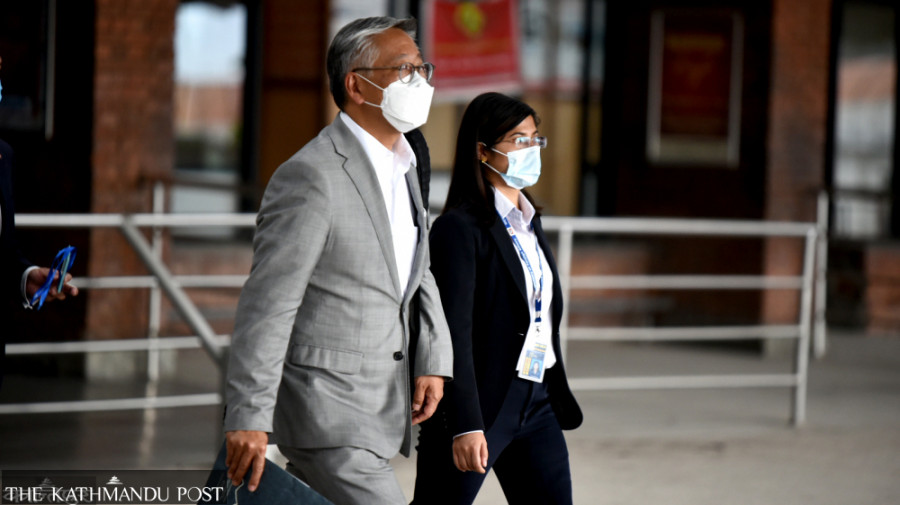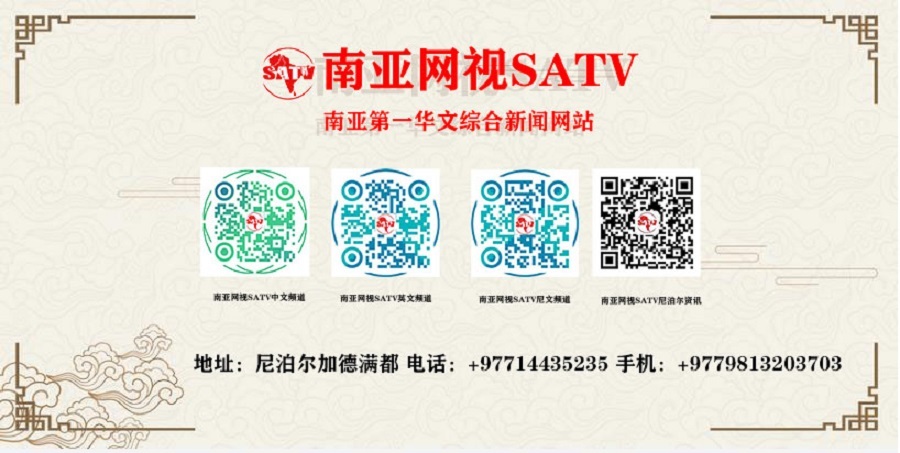
Amid speculations that Donald Lu, the visiting US assistant secretary for South and Central Asia at the State Department, is visiting Nepal with the purpose of pressing Nepal for its participation in the State Partnership Program, the government made it clear that it has already written to Washington expressing its intent not to be part of the programme.
During his meetings with Prime Minister Sher Bahadur Deuba and Foreign Minister Narayan Khadka, Lu, who arrived on Thursday, nothing related to the SPP surfaced, according to officials.
Unlike his visit in November last year, Lu did not meet with any other politicians like CPN-UML chair KP Sharma Oli and CPN (Maoist Centre) chair Pushpa Kamal Dahal.
During his last visit, Lu had strongly pitched for ratification of the Millennium Challenge Corporation Nepal Compact.
Later, in separate phone calls with Deuba, Oli and Dahal in February ahead of the MCC compact’s parliamentary ratification, Lu had even said Washington could review its ties with Nepal if the Nepali political leadership failed to stand by their commitment on the $500 million grant signed in September 2017.
Lu’s visit this time is happening in a different context, according to a senior Nepali official who was present during the US official’s meetings with Deuba and Khadka.
“The focus of talks is on enhancing economic partnership between Nepal and the US and how the US can extend assistance to Nepal for achieving sustainable development goals and help promote American investment in Nepal,” the official told the Post. “Since the SPP chapter has been closed after Nepal wrote to the US saying it doesn’t wish to be part of that scheme, there was no need to discuss it again.”
The meeting between Deuba and Lu took place hours after Foreign Minister Narayan Khadka informed the House that the government, through the diplomatic channel, wrote to the US that Nepal will not participate in the SPP.
Speaking at Friday’s House meeting, Minister Khadka said that the Foreign Ministry on July 25 dispatched a letter to the US government about the Cabinet’s June 21 decision.
A Foreign Ministry official confirmed to the Post about the letter to the US.
“The letter sent to the US is based on what the Cabinet decided on June 21,” the official said. “There’s nothing more than that… we have nothing more to share with you at this point of time.”
After pressure from parties across the political spectrum, the Cabinet on June 21 decided that Nepal will not be part of the SPP.
The US embassy in Kathmandu confirmed that it has received the letter sent by the Ministry of Foreign Affairs regarding the SPP.
“Yes, we received official written communication from the Government of Nepal regarding the State Partnership Program (SPP),” Garrett Wilkerson, public affairs chief of the US embassy, said in an email response. “We acknowledge and fully accept the Nepal government’s decision on the SPP.”
Wilkerson, who was also present during Friday’s meetings, said no discussions were held on the SPP.
“The assistant secretary did not discuss the SPP. Neither side raised the issue. The US government fully accepts the decision of the Government of Nepal on the SPP. After being friends for 75 years, the United States and Nepal have a lot to talk about. Today, the assistant secretary came to discuss food security, economic development, and our shared interest in strengthening democracy and protecting human rights,” said Wilkerson.
The controversy over the SPP arose in Nepal just as Deuba was preparing to visit the US, in the first official trip by a Nepali sitting prime minister in two decades.
Deuba was initially scheduled to fly to Washington in mid-July, but it became uncertain after the controversy over the SPP.
Amid a blame-game among parties, the US embassy said that Nepal was accepted in the SPP in 2019 after two requests in 2015 and 2017. It was the embassy again that said in a statement that any country can terminate its affiliation with the SPP by simply writing a letter to the US government.
Questions were being asked why the government despite its June 21 decision to stay away from the SPP was dragging its heels on writing a letter to the US.
"I would like to inform you that on July 25, the Foreign Ministry sent a letter to the US government saying that Nepal has decided not to proceed with the SPP,” Khadka told the House on Friday. “It took some time for us before we sent the letter as consultations were being held.”
Khadka, however, refused to divulge the content of the letter as some lawmakers asked him to furnish the letter and its details.
“We cannot make the letter public but everyone should trust the decision taken by the government. If we make the letter public, it will mean there’s mistrust in the government,” said Khadka.
Prime Minister Deuba’s press chief Govinda Pariyar said issues of bilateral cooperation and Nepal-US ties were the theme of the discussions during the meeting.
“The SPP did not figure in the meeting, both sides did not utter a single word about it and regarding the government's decision not to be part of it,” Pariyar told the Post.
According to Pariyar, Lu told Deuba and Khadka that he came to Kathmandu to deliver the US Secretary of State’s Award for Corporate Excellence to Purnaa, a US manufacturing company in Nepal that promotes ethical manufacturing by empowering traditionally marginalized people & survivors of exploitation.
“During the meeting with Deuba, Lu said that various US private companies are investing over $3 billion in Nepal in different sectors and creating business opportunities and employment,” said Pariyar.
Sources said Foreign Minister Khadka and Lu discussed implementing the MCC Nepal Compact and the new $469 million USAID support to Nepal for the next five years.
Lu assured that the US will continue its support to Nepal including trade facilitation and revival of tourism among others, according to sources.
On Deuba’s visit to the US, officials said, it is now being considered for September.
“We are discussing if we can coincide the visit with the United Nations General Assembly,” a Foreign Ministry official said.













